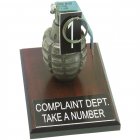It would be interesting to know how often criminal charges actually do result in cases of accidental shootings. I don’t think it’s inevitable at all.
Of “accidental” shootings, there are subclass causes, distinguished broadly by whether or not firing was even intended: such as accidental discharges, very poor aim, mistaken target identity, gun malfunctions, friendly fire, bad communication, improper loading (Lee film set), even believing that you are holding a taser instead of a gun, see above.
Of accidental discharges, there are finer subclasses such as dropping a gun, grazing a trigger, dry firing in error on an actual round, lowering a hammer too quickly and firing the gun, hung trigger, physical problem with the shooter’s muscular control, startling a shooter, shooter’s mistake on basic gun function or trigger pull weight, involuntary fire - such as having a small child fire an uzi such that it fires repeatedly and then upward or a small child finding an unsecured gun, among others.
My observation is that access and control breaches are the focal points of criminal prosecution. A parent’s lax securing of a gun causing an accident, or providing a felon with possession, is a certain path to being prosecuted with no finger on the trigger involvement. Likewise, the rules of safe gun handling, that each apply to the shooter, aren’t codified in any way into criminal law anywhere in the country to my knowledge, and as such they cannot be the basis for a prosecution, regardless of who it is.
If he personally rotated the cylinder, didn’t see the round or mistook it for already fired, a blank, or a camera dummy round that was supposed to be there, and fired the gun the same way, I don’t imagine anyone would think that changes criminal prosecution picture.











